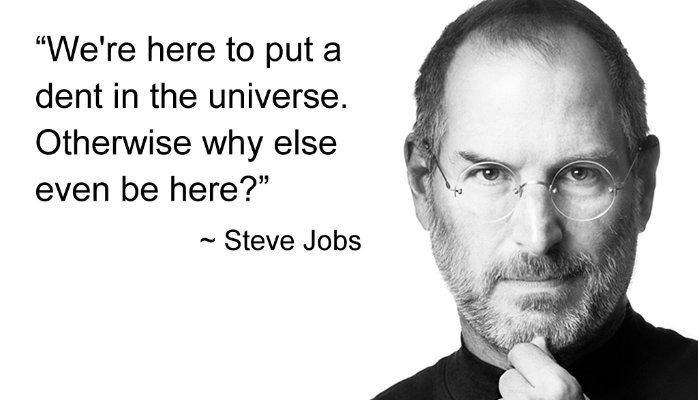Why smart people (you) do dumb things...

In my recent post I discussed how I fell victim to Impostor Syndrome, and how I eventually dealt with it.
The response to the topic (mostly on Twitter) was great.
I learned a lot.
I learned about the Dunning–Kruger effect which according to Wikipedia is:
"a cognitive bias in which unskilled people make poor decisions and reach erroneous conclusions, but their incompetence denies them the metacognitive ability to recognize their mistakes.
The unskilled therefore suffer from illusory superiority, rating their ability as above average, much higher than it actually is, while the highly skilled underrate their own abilities, suffering from illusory inferiority.
Actual competence may weaken self-confidence, as competent individuals may falsely assume that others have an equivalent understanding. As Kruger and Dunning conclude, 'the miscalibration of the incompetent stems from an error about the self, whereas the miscalibration of the highly competent stems from an error about others'"
If you are like me, your brain is hurting about now. Let me simplify that for you.
Essentially, the more you know, the more you realize you don't know. According to Kruger and Dunning, we have a tendency to overestimate our knowledge and ability if we are unskilled in a particular area.
I see it all the time in the workplace. People take on projects and soon find themselves overwhelmed by complexity, or do a less than optimal job. (If I look at the wiring renovation in my home done by a previous owner, I'd say he was in this category).
Conversely, those who are skilled can fall victim to underestimating their skill and ability, and may convince themselves that they are frauds and posers - the Impostor Syndrome
I also was reminded about the Fundamental Attribution Error. I had heard about the Fundamental Attribution Error before from Patrick Lencioni in his book Overcoming the Five Dysfunctions of a Team .
This is where we explain the behaviors of others differently than we explain our own. For example, if I saw a person back into another car in a parking lot, I would think they were a poor driver who doesn't pay attention. If I happen to back into another car, then I would think that somebody parked their car in the wrong place. (Note: this is an example. If you notice a fresh dent on your car, it wasn't me!)
This type of thinking creates a problem for effective leadership. We are not being honest about ourselves, or others.

It is well worth locating a copy of this book and giving this a read.
All of this to say - your thinking can sabotage your leadership. It influences the quality of your decisions and undermines your authenticity as a leader.
Self awareness for any leader is foundational.
Don't say you weren't warned.
___________________________________________________________________________________
Image: Bing Images - Licensed under Creative Commons License
A version of this post has previously appeared on LinkedIn
About the Author:

I'm the Chief Information Officer for Appleby College, in Oakville, Ontario Canada, where my team is transforming the delivery of education through innovative application of technology.
I'm convinced that IT leadership needs to dramatically change how IT is delivered rather than being relegated to a costly overhead department.
In addition to transforming IT in my role as CIO, I look for every opportunity to talk about this... writing, speaking and now blogging on BeBee, LinkedIn (https://ca.linkedin.com/in/kpashuk), ITWorld Canada, or at TurningTechInvisible.com.
I'm also an avid amateur musician and photographer (but not at the same time). Check out my photostream on Flickr or on beBee hive: serious-amateur-photographers
Articles from Kevin Pashuk
View blog
I have a problem. · It is most pronounced when I look in the mirror. · I think the damn thing is hau ...

You could hear him coming down the hall. · “Ricken, Fracken, Diggun, Ramda, etc., etc., etc. · “… ...

I've often shared the story of one of most productive meetings I've ever been part of. · Early in my ...
Related professionals
You may be interested in these jobs
-

General Labour
Found in: Talent CA C2 - 3 weeks ago
Randstad Canada Oro-Medonte, Canada FreelanceGreat career opportunity in Orillia in a Manufacturing plant · Can you Mig Weld but no welding ticket? · Could you pass a weld test? · This could be the Career you are looking for.... · Full time · Days - Monday to Friday · Permanent with 100% Benefits after 3 months · Pay rate ...
-

Security Guard, Healthcare Setting
Found in: Talent CA C2 - 1 week ago
GardaWorld Winnipeg, Canada· Are you ready to suit up? · If you are seeking a job where you have important responsibilities, this one is for you As a Security guard in the health care sector, you will ensure the safety of kids , families and staff. We are looking for a Full- Time and Part-TimeSecurity Gua ...
-
bookkeeper
Found in: Talent CA 2 C2 - 3 days ago
Markham NS Dental Markham, CanadaEducation: Secondary (high) school graduation certificate · Experience: 1 year to less than 2 years · or equivalent experience · Tasks · Calculate and prepare cheques for payroll · Calculate fixed assets and depreciation · Keep financial records and establish, maintain and balanc ...


Comments
mohammed khalaf
7 years ago #20
Kevin Pashuk
7 years ago #19
Unfortunately there's a lot of advice out there telling people to "Fake it, till you make it". While it is great to take on new challenges with confidence, it should be confidence based on an existing skill set, not a pretend one.
CityVP Manjit
7 years ago #18
Valid point about "sharpening the saw" takes friction, probably better for me to say "repetition is the mother of all learning". The smarter we are the more likely we are to engage streams of consciousness, so every now and again we have to nudge ourselves away from that ends up in a dumb place. What the invitation then is whether it is a discussion or a reflection or a brainstorm is in the hands of the guide, which is a leadership element.
Kevin Pashuk
7 years ago #17
There's always a corollary CityVP Manjit), but sharpening a saw takes friction... Instead of comments, this area should be called 'Discussion', where ideas are challenged, enhanced, and sometimes discarded.
CityVP Manjit
7 years ago #16
Kevin Pashuk
7 years ago #15
Between Don Kerr I think I've just lost an entire beBee friend... Congratulations you two.
don kerr
7 years ago #14
Lordy, lordy! Ain't that just so Paul \ Was checking out my belt the other day and realized that using my awl to create new holes had resulted in a good measure of my weight loss over the past 10 months. Forty-five pounds and about 8" off the waistline. Accomplished through (painfully) excluding red meat and almost all alcohol from my diet and maintaining my walking routine (started in advance of knee replacement surgery one year ago.) Yes, I would kill for a huge grilled Porterhouse and a brilliant bottle of Cabernet but enjoying this feast once every few months rather than once a week is a better course to follow. So I am told!
Kevin Pashuk
7 years ago #13
I'm sure it looks good right next to the treadmill.
Kevin Pashuk
7 years ago #12
#14 I do find that when I bend down to get something I look around while I'm down there to see if there is anything else I could be doing so as to avoid having to bend down a second time. Seriously though, I work at staying active - sitting has become the new 'smoking'. It seems to be one of the primary factors in people who age well - but that's a topic for another post.
CityVP Manjit
7 years ago #11
BTW Trust me, what you are saying about "bending down" tells me that you are one fit dude who has taken care of his fitness, whereas watching me bend down to pick up something is an exercise in total agony. Good news is that I have begun to take physical fitness a lot more seriously recently.
Kevin Pashuk
7 years ago #10
I don't even pretend to know what a derivative is Dean Owen. If I ask 5 people, I get 6 answers. The same is true in my world.. BYOD, Big Data, Cloud computing.... it goes on and on.
Kevin Pashuk
7 years ago #9
Thanks for commenting CityVP Manjit. Knowing one's own capability gets easier as one ages - especially when I bend down to pick up something. :)
Dean Owen
7 years ago #8
Kevin Pashuk
7 years ago #7
Wonderful insightful reply Don Kerr. I especially liked the line "Emotion is the one human ability that cannot be automated".
Kevin Pashuk
7 years ago #6
I'm sure there's a third category Paul \ in the adage "God protects little children and drunks". I've inherited more potentially lethal home 'improvement' projects than I care to state.
Kevin Pashuk
7 years ago #5
Thanks Gert Scholtz, I'll check out that book.
Gert Scholtz
7 years ago #4
Gert Scholtz
7 years ago #3
CityVP Manjit
7 years ago #2
don kerr
7 years ago #1